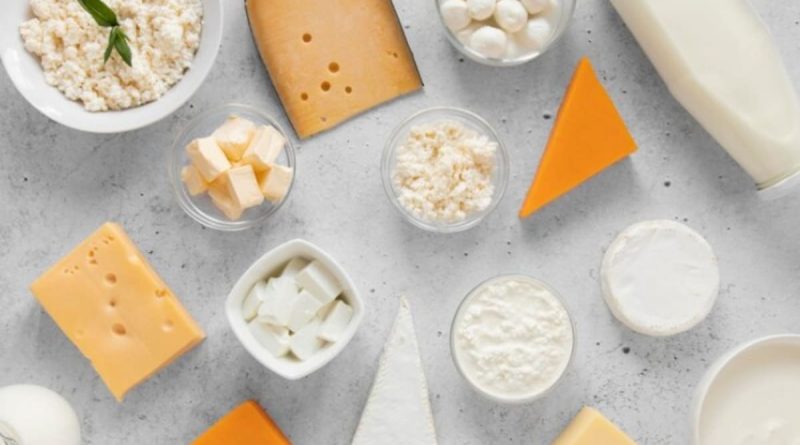World Without Dairy: Will Our Diet Miss It Or Compensate With Alternatives
Imagine a Dairy-Free World
Picture a world where the creamy luxury of dairy is nothing more than a faint memory. Gone are the days of milking cows, setting dahi, or enjoying the richness of paneer. In this alternate universe, the concept of cold coffee, cheese boards, and pizzas laden with melty mozzarella is as mythical as unicorns. Humanity, however, is resilient and has found ways to adapt and thrive without dairy. Let’s explore the nutritional challenges and dietary shifts that would arise in a dairy-free existence.
Health Benefits of Dairy: An Overview
Dairy products such as milk, cheese, yogurt, and butter are cornerstones of nutrition due to their rich nutrient profiles. Here are some of the essential benefits dairy brings to our diet:
Calcium Source for Bone Health
Dairy is one of the most concentrated and bioavailable sources of calcium. This mineral is crucial for the development and maintenance of strong bones and teeth, as well as muscle function and nerve signaling.
Impact: Without dairy, there is a significant risk of calcium deficiency, potentially leading to increased rates of osteoporosis and bone fractures, particularly in populations that heavily rely on dairy for their calcium intake.
Protein Content
Dairy provides high-quality, complete proteins that contain all essential amino acids necessary for muscle growth, repair, and overall bodily functions. In regions where many vegetarians rely on milk as a primary source of ‘A-class’ protein, the absence of dairy would necessitate a shift to ‘B-class’ proteins.
Impact: Populations that depend on dairy for protein would need to explore alternatives such as plant-based proteins, nuts, seeds, or fancy millets, which might not be as accessible or affordable.
Richness in Essential Micronutrients
Milk and dairy products are packed with essential micronutrients, including:
- Vitamin D: Crucial for calcium absorption and immune function, often found in fortified dairy products.
- Phosphorus: Supports bone and cell health.
- Potassium: Helps maintain blood pressure and fluid balance.
- Vitamin B12: Naturally occurring in dairy, essential for red blood cell formation and nervous system health.
Impact: A dairy-free diet could lead to widespread deficiencies in vitamin D and B12, especially in regions with limited access to fortified or alternative foods.
Energy and Healthy Fats
Dairy provides energy through fats, including healthy omega-3s found in grass-fed products. Low-fat or skim options are also available to cater to specific dietary needs.
Impact: People would need to find alternative sources of healthy fats and energy, which may not offer the same versatility and convenience as dairy products.
Digestive Health
Fermented dairy products like yogurt and kefir are rich in probiotics that support gut health and the microbiome. Traditional remedies like dahi for upset stomachs, lassi for summer heat relief, and chilled milk for soothing acidity would be missed.
Impact: The absence of dairy-based probiotics could affect gut health, necessitating a shift to plant-based or non-dairy fermented foods like kimchi, sauerkraut, or tempeh, which may not be as effective or familiar.
Challenges in a Dairy-Free World
Living without dairy would require significant adjustments to maintain nutritional balance:
Calcium Alternatives
Non-dairy sources such as leafy greens (e.g., spinach, kale), fortified plant-based milks, tofu, and almonds can help meet calcium needs. However, calcium absorption from these sources is often less efficient, requiring larger quantities and higher costs.
Protein Substitutes
Legumes, nuts, seeds, soy products, and eggs could serve as protein substitutes. However, they may not match the amino acid profile or convenience offered by dairy products.
Vitamin D and B12 Deficiency Risks
Non-dairy sources of vitamin D include sunlight, fortified plant-based foods, and fatty fish. For vitamin B12, found only in animal products, supplementation would be necessary, especially for vegetarians or vegans.
Accessibility of Alternatives
Plant-based milk, cheese, and yogurt alternatives are often more expensive or less readily available, posing a challenge for widespread adoption.
Final Thoughts
Dairy’s nutritional significance lies in its role as a dense, convenient, and versatile source of essential nutrients. Its absence would be keenly felt, and the unique flavors it contributes to our daily meals remain truly irreplaceable. As we navigate this hypothetical dairy-free world, the challenge lies in finding sustainable and accessible alternatives that ensure the health and well-being of all populations.

